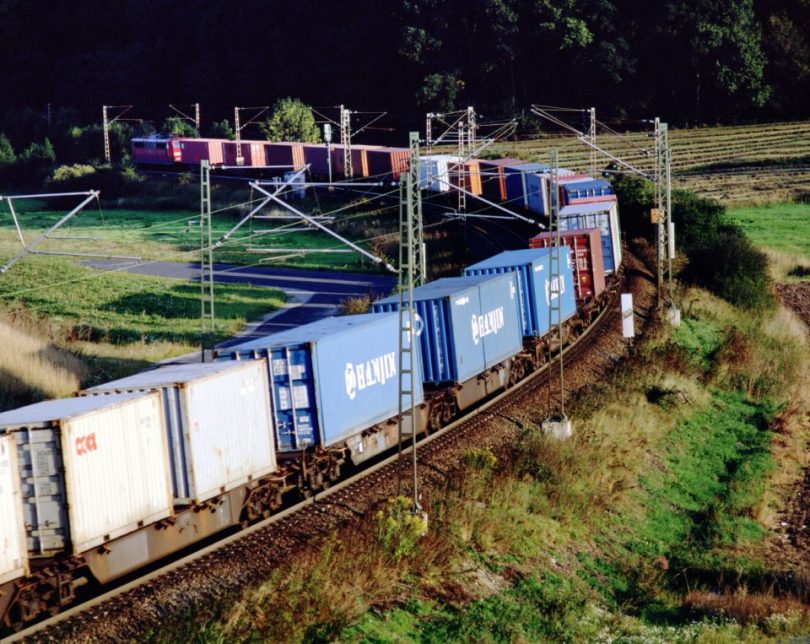DB Cargo moves 40,000 containers from Germany to China

DB Cargo had its most successful year ever in 2016 for transporting goods between Germany and China on what was – until this week – the world’s longest freight rail route. The company moved more than 40,000 containers along the 11,000-kilometre route, and has pledged to more than double this amount within four years.
It builds on DB’s successes in gaining a strong foothold in the Chinese market, which include various projects on transport routes, the most recent being the appointment of DB engineers to provide consulting services for local transport in the city of Dalian.
The company is also celebrating two other successes; a new contract with Japanese firm Toshiba to develop new hybrid locomotives, and being recognised as a major contributor to environmental protection.
Partnership
DB’s Germany-China rail link is run in partnership with train companies in Poland, Belarus, Russia, Kazakhstan, Mongolia and China. The route involves several breaks-of-gauge, where one line meets a line of a different gauge, requiring the movement, or transshipment, of cargo from one system to the other.
The trip usually takes 12 to 16 days, which is twice the speed of shipped goods. It is particularly popular with customers who wish to move time-sensitive goods, such as merchandise to be sold as part of special promotions in the clothing industry. Since 2011, DB and its partners have also been transporting automotive parts for the BMW Group from the German cities of Leipzig and Regensburg to an automotive plant in the Chinese city of Shenyang.
The much-disputed title of the world’s longest freight route will today be revised, with the first direct freight service between China and London due to reach DB Cargo UK’s London Eurohub at Barking.
Time-sensitive
Ronald Pofalla, Board Member for Economic, Legal and Regulatory Affairs at Deutsche Bahn said: “We transported more than 40,000 containers – the largest volume of freight ever – across the world’s longest rail route. This achievement puts us well on the way to raising the number of containers to some 100,000 by 2020, triple the number we transported in 2014.”
The company has also signed a deal with Toshiba for the joint development of a new hybrid locomotive for the European rail market, the first 100 of which will be bought by DB Cargo. The vehicles will be used in regional transport operations, and the first vehicles are expected to be available by the end of 2019. The hybrid vehicles are used as short-range locomotives and, in addition to significantly lower diesel consumption and lower maintenance costs, enable a higher average fleet availability. The value of the contract has not been disclosed.
Win-win
Jürgen Wilder, CEO of DB Cargo, said: “The goal is to develop together with Toshiba the supplier market for freight locomotives and components. DB Cargo has access to future technologies, which are currently not available on the local market. In return, we are supporting Toshiba as the largest European freight carrier at the market entry – a classic win-win situation.”
DB has also been commended for providing an ‘exceptional contribution to environmental protection’, in an awards scheme run by international rating agency CDP, formerly known as the Carbon Disclosure Project. Each year it publishes a comprehensive environmental protection list, in which it ranks companies’ work to protect the environment and the transparency of their reporting.
Sector leader
For 2016 it gave Deutsche Bahn an ‘A’ score, identifying it as a sector leader for transportation and putting it among the top non-listed companies in Germany. DB Cargo’s ‘green’ products were a major factor in it achieving the high rating.
“We are happy to see that our customers are increasingly taking advantage of our eco-friendly products to lower their environmental footprints and make an important contribution to protecting the environment and fighting climate change,” added Jürgen Wilder. “Each year, we see a 30 per cent increase in the amount of green power booked by our customers.”
You just read one of our premium articles free of charge
Want full access? Take advantage of our exclusive offer





